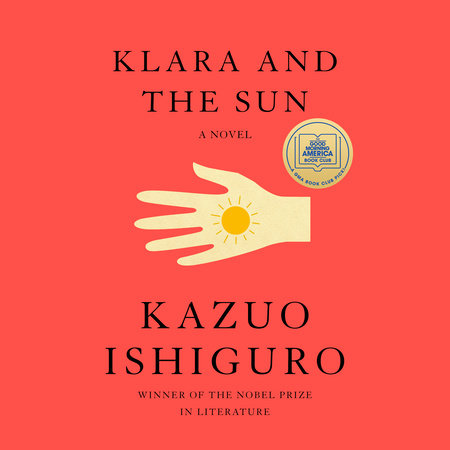“Klara and the Sun” book review

Klara and the Sun by Kazuo Ishiguro
May 26, 2021
Klara and the Sun is Nobel Prize winner Kazuo Ishiguro’s latest of eight books. The book follows in his line of dystopias, picking up many of the characteristics of Never Let Me Go. The story revolves around Klara, an Artificial Friend assigned to Josie, the daughter of a wealthy family, and for most of the book follows the two as they grow up together. The book touches on darker themes later on, and reveals the nefarious nature of the dystopian society.
Fans of Ishiguro will be familiar with his distinct writing style, but the subtleties of language are somewhat lost in Klara’s narration. Her voice is handled well considering she doesn’t have the emotions humans do, but the flaws of having a machine narrate in the first place are evident. Seeing the world through Klara’s passive point of view causes a disconnect that prevents readers from fully empathizing with the characters. Even the human characters, when viewed through such a calculating lens, are rendered somewhat robotic, too. The book isn’t entirely without emotion– there are some moments, specifically with the character of Josie’s best friend, that are thought provoking and meaningful. Many of the interactions between Josie and her mother, too, are nuanced and realistic, despite the passivity of the narration.
Ishiguro’s signature plot style is used effectively. The grand reveal at the end of the book harkens back to the ending of Never Let Me Go, and while it doesn’t carry the same emotional weight, is a satisfying close to the story. There are moments throughout the book where the detachedness of the narration is a plus, and actually gives a further look into the mindset of characters. Klara’s viewpoint, analytical as it is, always reflects the absolute truth. Interactions involving Josie’s father towards the end of the book, when they return to the city, reveal his true emotions in a way that a biased narrator wouldn’t be able to provide.
Worldbuilding is slight but not lacking, grounded in obvious research but allowing only what’s absolutely necessary to slip through onto the page. Ishiguro masterfully threads clues throughout the book. He distracts not with daring adventure and action, but with the simple beauty of Klara’s life. It’s easy to get swept up in descriptions of the sunset and entirely miss the pieces which add up to reveal the final image, leaving a signature twist ending to shock readers.
Klara and the Sun does not surpass the legacy of Ishiguro’s prior feats of literature, but fans will not be disappointed with another fix of his intricate plotting and deceivingly simple prose. The subtle science-fiction backdrop is accessible for readers of any genre, and serves mostly as a literary device rather than true hard science.Yet another of Ishiguro’s contributions to diversifying science fiction, Klara and the Sun is predictably masterfully written, and a deserving addition to any sci-fi reader’s shelf.






